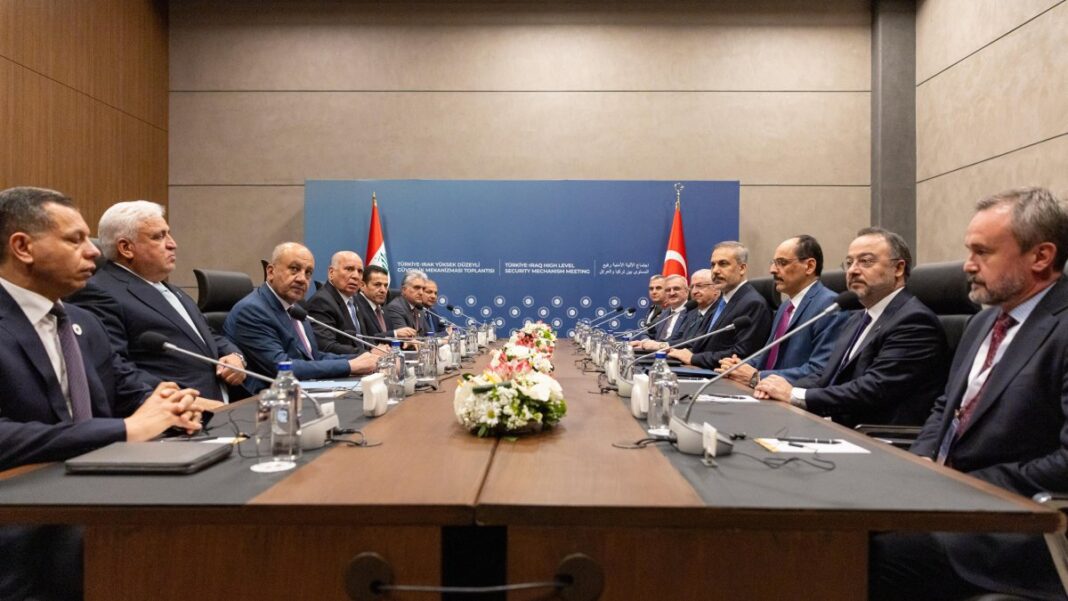Shares of carmakers from Toyota to Hyundai Motor rallied on Tuesday as U.S. President Donald Trump suggested a day earlier that he was “flexible,” signaling he might temporarily exempt the auto industry from tariffs he previously imposed on the sector, to give carmakers time to adjust their supply chains.
“I’m looking at something to help some of the car companies with it,” Trump told reporters in the Oval Office.
The Republican president said automakers needed time to relocate production from Canada, Mexico and other places, “And they need a little bit of time because they’re going to make them here, but they need a little bit of time. So I’m talking about things like that.”
Matt Blunt, president of the American Automotive Policy Council, an association representing Ford, General Motors and Stellantis, said the group shared Trump’s goals of increased domestic production.
“There is increasing awareness that broad tariffs on parts could undermine our shared goal of building a thriving and growing American auto industry, and that many of these supply chain transitions will take time,” Blunt said.
Trump’s statement hinted at yet another round of reversals on tariffs as Trump’s onslaught of import taxes has panicked financial markets and raised deep concerns from Wall Street economists about a possible recession.
When Trump announced the 25% auto tariffs on March 27, he described them as “permanent.” His hard lines on trade have become increasingly blurred as he has sought to limit the possible economic and political blowback from his policies.
Last week, after a bond market sell-off pushed up interest rates on U.S. debt, Trump announced that for 90 days, his broader tariffs against dozens of countries would instead be set at a baseline 10% to give time for negotiations.
At the same time, Trump increased the import taxes on China to 145%, only to temporarily exempt electronics from some of those tariffs by having those goods charged at a 20% rate.
“I don’t change my mind, but I’m flexible,” Trump said Monday.
Trump’s flexibility has also fueled a sense of uncertainty and confusion about his intentions and end goals. The S&P 500 stock index was up 0.8% on Monday but is still down nearly 8% this year. Interest rates on 10-year U.S. Treasury notes were elevated at roughly 4.4%.
Carl Tannenbaum, chief economist for the Northern Trust global financial firm, said the whiplash had been so great that he might have to “get fitted for a neck brace.”
Tannenbaum warned in an analysis: “Damage to consumer, business and market confidence may already be irreversible.”
Automakers rally
However, equities mostly rose on Tuesday as some stability returned to markets after last week’s rollercoaster ride, with auto firms particularly boosted by Trump’s possible compromise over steep tariffs on the sector.
After a broadly positive day on Wall Street, Asian markets fluctuated.
Tokyo and Seoul were among the best performers thanks to a rally in autos after Trump said he was “very flexible” and “looking at something to help some of the car companies” hit by his 25% tariff on all imports.
Toyota and Mazda jumped between 3% and 3.7% and Nissan more than 1%, while Seoul-listed Hyundai jumped more than 4%.
South Korea’s announcement of plans to invest an additional $4.9 billion in the country’s semiconductor sector gave a little lift to chip giants Samsung and SK hynix.
Hong Kong, Shanghai, Sydney, Singapore, Taipei, Mumbai, Manila and Jakarta also rallied. London climbed with Frankfurt, but Paris edged down.
Automaker Stellantis, whose brands include Jeep, Fiat and Peugeot, gained over 4% in Paris, while German brands Volkswagen and Mercedes-Benz advanced more than 2%.
“This serves to double down on the weekend narrative that Trump will reverse some of his tariffs once company execs approach him to highlight the huge negative implications of his action,” said Joshua Mahony, chief market analyst at Scope Markets.
“It therefore comes as no surprise to see the likes of Aston Martin Lagonda, BMW and Volkswagen heading up the gainers,” he added.
Trade negotiations
Meanwhile, the pause of 90 days for reciprocal tariffs opened a period that is likely to see individual countries looking to strike a deal with the Trump administration to avoid the levies.
Maros Sefcovic, the European commissioner for trade and economic security, posted on X on Monday that on behalf of the European Union, he engaged in trade negotiations with Commerce Secretary Howard Lutnick and U.S. Trade Representative Jamieson Greer.
“The EU remains constructive and ready for a fair deal – including reciprocity through our 0-for-0 tariff offer on industrial goods and the work on non-tariff barriers,” Sefcovic said.
The U.S. president also said that he spoke with Apple CEO Tim Cook and “helped” him recently. Many Apple products, including its popular iPhone, are assembled in China.
Apple didn’t respond to a Monday request by The Associated Press (AP) for comment about the latest swings in the Trump administration’s tariff pendulum.
Even if the exemptions granted on electronics last week turn out to be short-lived, the temporary reprieve gives Apple some breathing room to figure out ways to minimize the trade war’s impact on its iPhone sales in the U.S.
That prospect helped lift Apple’s stock price 2% on Monday. Still, the stock gave up some of its earlier 7% increase as investors processed the possibility that the iPhone could still be jolted by more tariffs on Chinese-made products in the weeks ahead.
‘Mass uncertainty, chaos, confusion’
Wedbush Securities analyst Dan Ives said Apple is clearly in a far better position than it was a week ago, but he warned there’s still “mass uncertainty, chaos, and confusion about the next steps ahead.”
One possible workaround Apple may be examining during the current tariff reprieve is how to shift even more of its iPhone production from its longtime hubs in China to India, where it began expanding its manufacturing while Trump waged a trade war during his first term as president.
The Trump administration has suggested that its tariffs have isolated China, as the U.S. has talked with other countries.
But China also seeks to build tighter relationships in Asia with nations stung by Trump’s tariffs. China’s leader, Xi Jinping, on Monday met in Hanoi with Vietnam’s Communist Party General Secretary To Lam with the message that no one wins in trade wars.
Asked about the meeting, Trump suggested the two nations were conspiring to do economic harm to the U.S. by “trying to figure out how do we screw the U.S. of America.”





